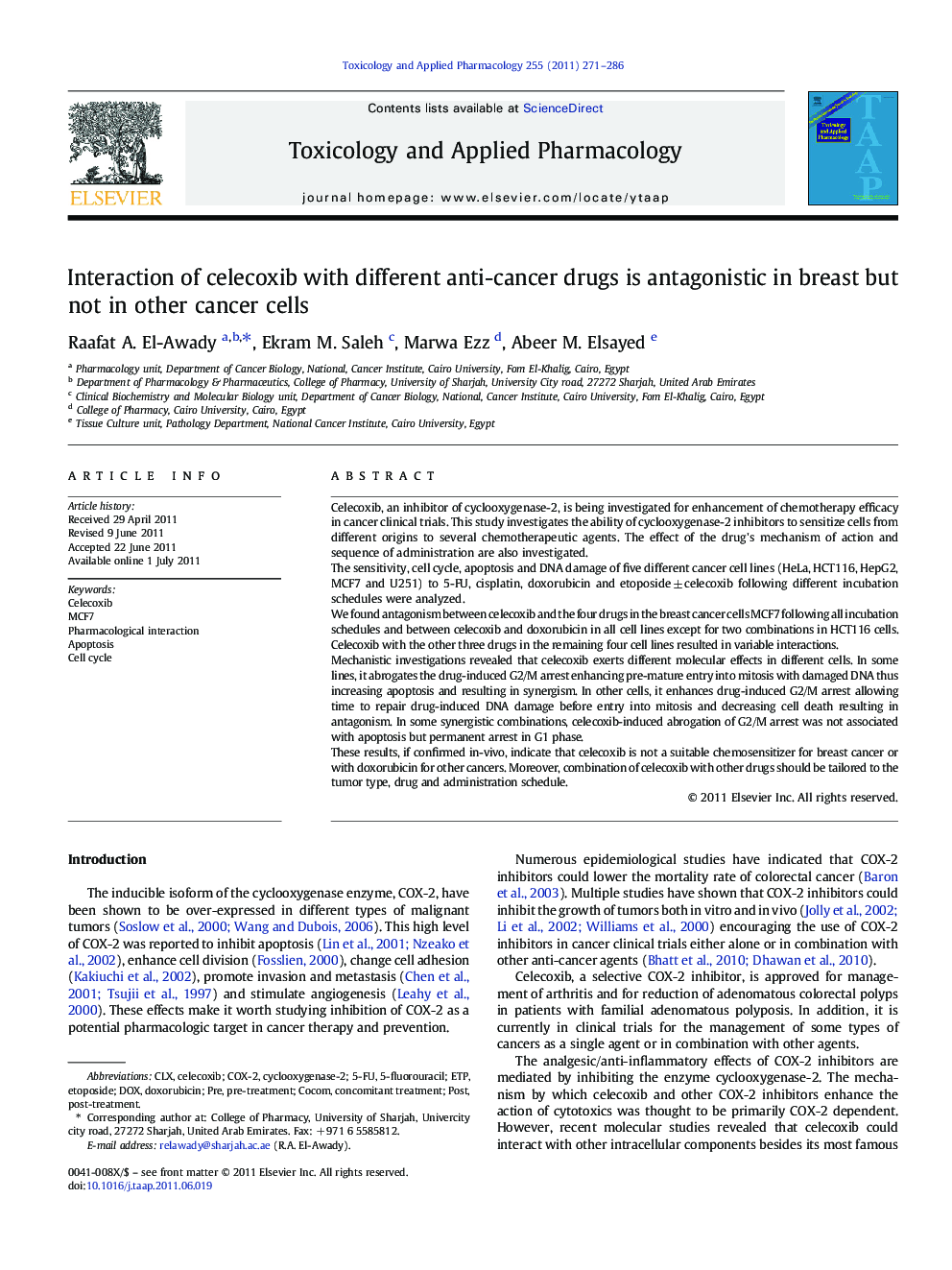| Article ID | Journal | Published Year | Pages | File Type |
|---|---|---|---|---|
| 2569341 | Toxicology and Applied Pharmacology | 2011 | 16 Pages |
Celecoxib, an inhibitor of cyclooxygenase-2, is being investigated for enhancement of chemotherapy efficacy in cancer clinical trials. This study investigates the ability of cyclooxygenase-2 inhibitors to sensitize cells from different origins to several chemotherapeutic agents. The effect of the drug's mechanism of action and sequence of administration are also investigated.The sensitivity, cell cycle, apoptosis and DNA damage of five different cancer cell lines (HeLa, HCT116, HepG2, MCF7 and U251) to 5-FU, cisplatin, doxorubicin and etoposide ± celecoxib following different incubation schedules were analyzed.We found antagonism between celecoxib and the four drugs in the breast cancer cells MCF7 following all incubation schedules and between celecoxib and doxorubicin in all cell lines except for two combinations in HCT116 cells. Celecoxib with the other three drugs in the remaining four cell lines resulted in variable interactions.Mechanistic investigations revealed that celecoxib exerts different molecular effects in different cells. In some lines, it abrogates the drug-induced G2/M arrest enhancing pre-mature entry into mitosis with damaged DNA thus increasing apoptosis and resulting in synergism. In other cells, it enhances drug-induced G2/M arrest allowing time to repair drug-induced DNA damage before entry into mitosis and decreasing cell death resulting in antagonism. In some synergistic combinations, celecoxib-induced abrogation of G2/M arrest was not associated with apoptosis but permanent arrest in G1 phase.These results, if confirmed in-vivo, indicate that celecoxib is not a suitable chemosensitizer for breast cancer or with doxorubicin for other cancers. Moreover, combination of celecoxib with other drugs should be tailored to the tumor type, drug and administration schedule.
Graphical abstractFigure optionsDownload full-size imageDownload high-quality image (154 K)Download as PowerPoint slideHighlights► Celecoxib may enhance effects of anticancer drugs. ► Its combination with four drugs was tested in five cancer cell lines. ► It antagonized the effects of the four drugs in the breast cancer cell line MCF7. ► Doxorubicin's cytotoxic effects were antagonized by celecoxib in four cell lines. ► Cell cycle, apoptosis and DNA damage explain the different interactive effects.
